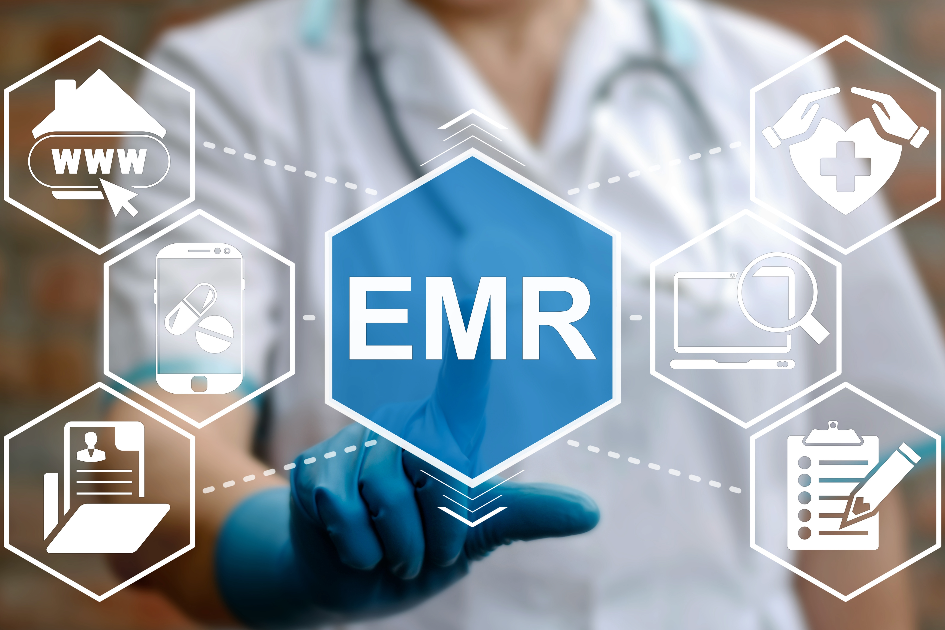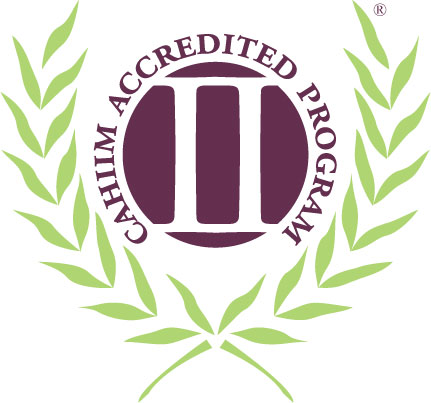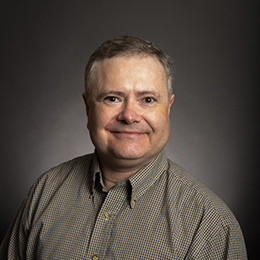Health Informatics and Information Management, BS
Program Inactive
We will no longer accept new enrollments for the HIIM BS program after December 31, 2024. The program continues to be CAHIIM accredited in an inactive status until all students graduate or until December 31, 2026, whichever comes first. Students who graduate prior to December 31, 2026, are eligible to sit for AHIMA’s RHIA credentialing exam.
The HIIM curriculum has been integrated into a new Health Informatics specialization in the Computer Information Systems Bachelor of Science program. Students may also be interested in the 12-credit Health Information Certificate program
Learn more about Computer Information Systems: Health Informatics
Learn more about the Health Information Specialist Certificate
Impact clinical data quality with technology expertise
Become an expert in managing electronic health records and partnering with clinicians to improve healthcare documentation with an online Bachelor of Science in Health Informatics and Information Management (HIIM). As a HIIM professional, you can influence better patient care and reimbursement.
With a bachelor's degree from DSU, you will be prepared to work in any healthcare or related business or government setting. Combine your interests in healthcare, business, and technology to pursue leadership roles as a health information director, consultant, manager, analyst, or specialist. You will be trained to code diagnoses and procedures and analyze revenue for accurate reimbursement. Gain skills to influence clinical data quality for patient care and organization operations.
Our program will prepare you to lead an interprofessional team, a critical capability in today’s workplace. Courses include innovative healthcare, technology, and business-related topics. You will be equipped to support the use of information technology to streamline clinical workflows, improve documentation methods, and provide training and ongoing support of the electronic health record. With your knowledge of information technology, you can analyze healthcare data to improve outcomes of care, and protect patient data from breaches.
Online courses
The Health Informatics and Information Management bachelor’s program is offered 100% online or hybrid. Whether you are a traditional student or a working professional, this flexible program allows you to complete your degree how it works best for you, remote or hybrid, and as a full-time or part-time student. Easily transfer an associate's degree or previously earned credits toward your bachelor's.
Stackable credentials
The HIIMS programs are specifically designed to be stacked. From the certificates, associate's and bachelor's degrees to graduate certificate, and master's degree, you can earn stackable credentials. With our 4+1 program, you can complete your Bachelors degree in HIIM and Masters in HIIM in just five years.
Why choose health informatics and information management at DSU
Producing professionals of the highest quality
Manage electronic healthcare records
Upon program completion, you will be able to develop and implement a health information management system that is appropriate for varying healthcare facilities, organizations, and agencies.
Collaborate with clinicians and IT
The healthcare industry requires ethical leaders who can communicate well and protect a patient's private healthcare information while managing health data quality and integrity processes, to ensure documentation accuracy.
Use technology expertise to improve workflows
You will be equipped to implement policies and procedures for information handling and dissemination, following ethics and in conformity with applicable federal, state, and local statutes and regulations.
Students gain real-world experience with supervised professional practices. These practices are completed at a healthcare facility and provide hands-on training and networking.

Advance your skills, increase your salary
The U.S. Bureau of Labor Statistics predicts above-average growth for this occupation. As an HIIM professional, you know just how important it is to stay up to date on emerging technologies and medical practices. Professionals who seek higher education and gain essential skills and credentials can open up many doors to advance their careers – and their salaries.
Accreditation where it matters most
The Health Informatics and Information Management accreditor of Dakota State University is the Commission on Accreditation for Health Informatics and Information Management Education (CAHIIM). The College’s accreditation for the Bachelor of Science degree in Health Information Administration has been reaffirmed through 2029-30.

DSU's associate, bachelor's and master's programs in HIIM are all accredited by the Commission on Accreditation for Health Informatics and Information Management Education (CAHIIM).
The associate and bachelor's progams are in CAHIIM inactivated status with a two-year teach out until Decemeber 31, 2026.
Students completing programs during the teachout peiord are eligible to take the national exam, which is sponsored by the American Health Information Management Association (AHIMA). You can also earn a Registered Health Information Administration (RHIA) credential.
Accreditation inquiries
All inquiries about the program’s accreditation status should be directed by mail to CAHIIM, 200 East Randolph Street, Suite 5100, Chicago, IL, 60601; by phone at 312.235.3255; or by email at info@cahiim.org.









